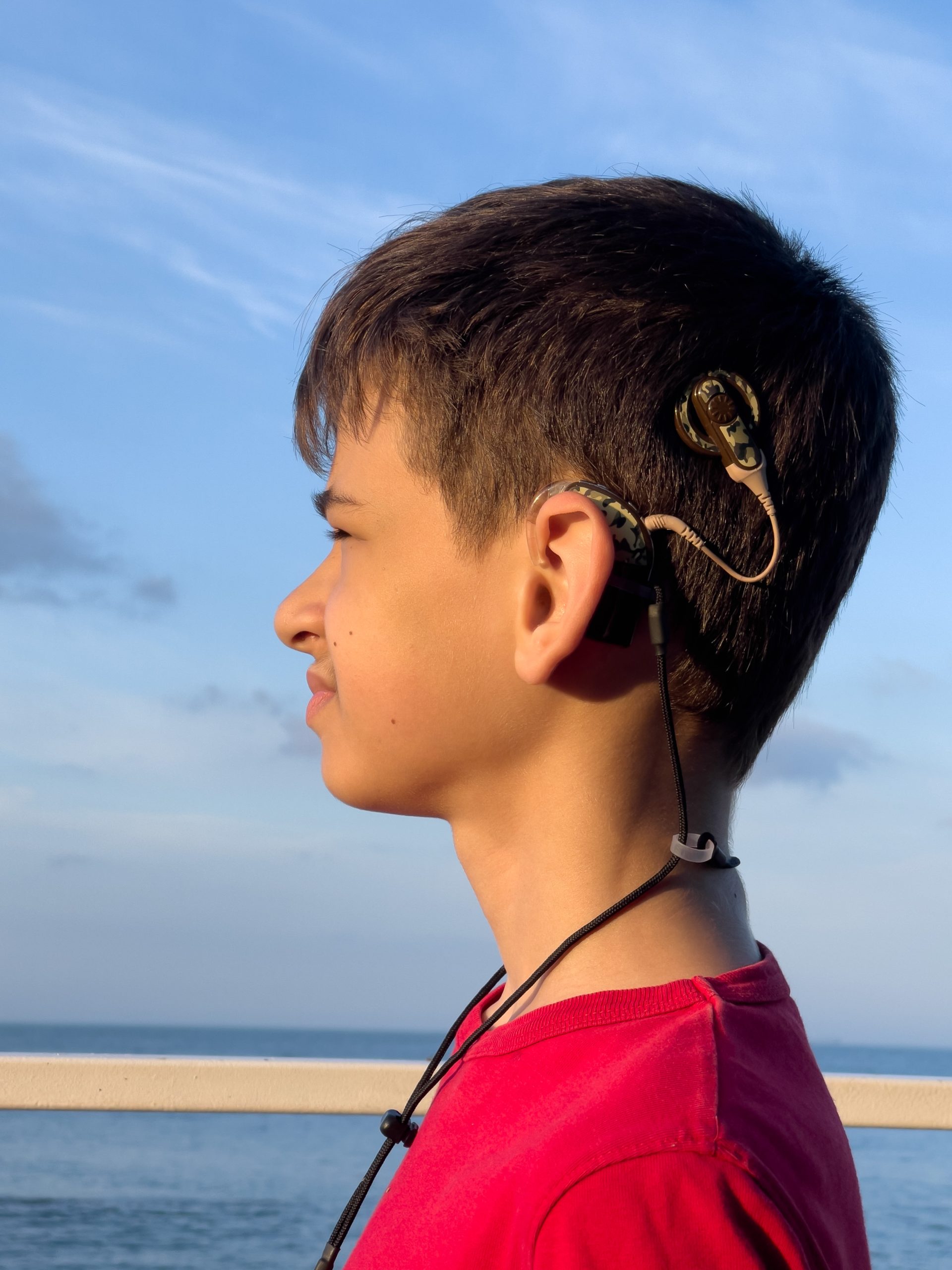Auditory brainstem transplantation in Türkiye
Auditory Brainstem İmplant (ABI) is a surgically implanted device for the treatment of patients with profound sensorineural hearing loss who have not been able to undergo treatments such as a cochlear implant .

Objectives of auditory brainstem implantation:
The main goal of the operation is to restore hearing in people with hearing loss who cannot get a cochlear implant.
What is the difference between cochlear implants and brainstem implants?
The two devices differ from each other, although there is a similarity in terms of design and function of the implants, where the cochlear implant is used in individuals with cochlear damage, but they still have an active auditory nerve, in other words, the cochlear implant works by bypassing the damaged areas of the inner ear through the use of a set of electrodes To stimulate the auditory nerve directly and then the auditory nerve sends the signals generated by the implant to the brain, which recognizes the signals as sound but the auditory brainstem implant bypasses the inner ear and the auditory nerve and uses a set of electrodes to stimulate the hearing pathways on the brainstem directly. It must be said that auditory brainstem implantation surgery is a brain surgery, and it is considered an advanced level of complexity compared to cochlear implant surgery, which is at the level of inner ear surgery.
Sections and parts of the auditory brainstem implant
The implant consists of two separate parts, and the outer part of it (which is worn above the ear) is called the processor, which in turn contains a microphone that captures the surrounding sounds and translates them in the form of an electrical signal that is sent to the internal implant. The internal implant consists of a receiver that is implanted directly under the skin. on the side of the head and ending in an electronic “paddle” that sits on the surface of the brainstem in an area called the cochlear nucleus complex. Electrodes on the paddle activate different types of neurons in the brainstem, creating sensations of sound and tone.
Who is suitable for an auditory brainstem implant?
Surgery is appropriate for a number of medical conditions, including:
- Being born without an auditory nerve in either ear (aplasia) or an incorrectly developed auditory nerve (hypoplasia).
- Deafness caused by an abnormal shape of the inner ear (cochlea), incomplete development of the inner ear (cochlear hypoplasia ) , absence of inner ear structures (cochlear aplasia), or overgrowth of bone in the inner ear or growth of bone in the Inner ear (cochlear ossification).
- Injuries or fractures in the temporal bone (the area of the skull above the ear) on both sides of the head that led to a fracture of the auditory nerve
- Those who have other causes of severe deafness and who cannot benefit from a hearing aid or cochlear implant.
Is it possible to restore hearing and what are the expected results?
First, it must be understood that the implant does not restore normal hearing, but the auditory brainstem implant enables the following:
- Improve phonemic awareness.
- Develop the ability to detect sounds and differentiate between them, such as differentiating between a female voice versus a male voice, a child voice versus an adult voice.
- Support for the ability to identify environmental sounds such as dogs barking versus a ringing phone.
- Enrich face-to-face communication by improving the ability to read lips.
Results vary widely and researchers are still exploring possible causes, which include the cause of deafness, surgical approach, surgeon experience, device design, signal processing, device programming issues and other factors.
What tests are performed on auditory brainstem transplant candidates?
First, the medical history of the patient is fully collected, then imaging is performed to examine the condition of the cochlea, the auditory nerve, and the surrounding structures. These tests include a CT scan and magnetic resonance imaging, and the latter helps to display the anatomy of soft tissues such as the auditory nerve, in addition to an electrophysiology test to assess the extent and location of hearing impairment . A behavioral test is also used to determine hearing ability and a communication assessment to examine language development and communication style. The neuropsychological assessment examines the level of brain functions (thought, learning, memory, language development, motor abilities, organization/planning skills, and concentration).
How is auditory brainstem implant surgery performed?
The operation is considered a complex surgical procedure, which is performed by a team that usually includes a neurosurgeon, an anesthesiologist and a neurologist, in addition to conducting extensive tests during the operation to confirm function and help adjust the position of the implant by the electrophysiologist and audiologist in a procedure.
Post surgery:
The typical hospital stay is 2 to 4 days. Programming of the device begins in the operating room during implant placement. The ABI is usually activated 4 to 6 weeks after surgery. The device’s programming continues to be modified over several days, and then monthly for the first year after implantation.
How can I book an auditory brainstem transplant in Türkiye?

- Free medical support on the phone: You will have a dedicated representative for your health condition who is always ready to answer your questions.
- Free consultation with a specialist doctor: Your medical representative will consult with a number of doctors and hospitals to find the best possible treatments.
- Free travel visa arrangement: We will contact the embassy in your country to assist you in obtaining a visa to visit Türkiye.
- Free itinerary planning: We will create a schedule for your medical trip to Türkiye.
- Free translation of documents and reports: We will translate medical documents and reports into Turkish on your behalf.
- Free support and monitoring: We will monitor the stages of treatment and be by your side every step of the way.
- Free instant translation: We will be with you during the treatment stages to provide translation between you and the medical team.
- Free accommodation and transportation coordination: We will book accommodation for you and your companions in Türkiye, along with transportation services.
Contact REHABTÜRK doctors for more information about the procedure and to evaluate your medical condition.
